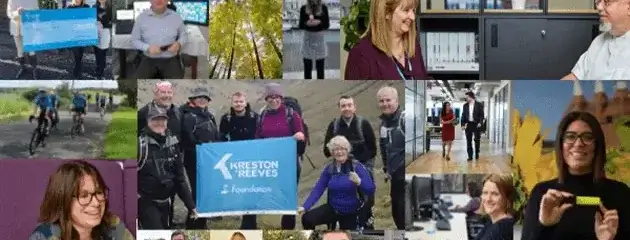What do we want to see from COP26
The eyes of the world will turn to Glasgow on 1 November as the 26th annual UN climate conference, COP26, gets underway.
Despite some high-profile world leaders saying they will not attend, it is likely to have a lasting impact on the way we live our lives and how businesses will operate.
It is beyond doubt that our planet is getting warmer and that our way of life is threatened by climate catastrophe. COP26 will charge 200 countries to set out their plans on how they intend to reduce carbon emissions by 2030.
We do not know what those measures will be, but they might include a faster switch to electric cars, speeding up the phasing out of coal-powered power stations, measures to reduce industrial logging, and increased efforts to protect communities vulnerable to climate change.
The UK government has already made some bold announcements on how it intends to decarbonise the UK economy. Diesel and petrol cars will no longer be sold in the UK from 2030, gas boilers in new homes are to be phased out by 2035 with grants made available for homeowners to switch to heat pumps, and over 7,000 hectares of woodlands planted by 2024.
We can expect more announcements to follow, and perhaps COP26 is what the UK government are waiting for with very little in the way of policy changes announced in the Budget this week. Perhaps most surprisingly was the decision to cut air passenger duty on domestic flights. Whilst in emissions terms this may be cancelled out by the rise of duty on long haul flights, it doesn’t seem to signal that we are world-leading in the race to net-zero.
There is more that each one of us can do.
Over the next few weeks, we will share with you our thoughts and reactions to announcements made at COP26.
To start, I asked my colleagues at Kreston Reeves what measures they think would be the most effective in securing global net-zero by 2050.
- Accelerating the adoption of low carbon transportation is considered the most effective measure. This must extend beyond greater adoption of electric vehicles by the public to include investment in charging infrastructure, in public transport, logistics and net-zero aviation.
- For businesses, stronger measures on carbon reporting are also considered necessary with additional taxes on heavy carbon emitters. And for individuals, subsidies to support greater energy efficiency in our homes is needed.
- Food production, particularly meat production, is carbon-intensive. Making changes to our diet, such as meat-free days, could go some way to reducing carbon emissions, but remains a tough sell for many of us.
What is clear is that the responsibility for carbon reductions rests not only with business and government, but with every one of us. We will explore some of these issues over the coming weeks in further posts around COP26.
For more information about the topic explored in this article, contact us here.
Share this article
Subscribe to our newsletters
Our complimentary newsletters and event invitations are designed to provide you with regular updates, insight and guidance.
You can unsubscribe from our email communications at any time by emailing [email protected] or by clicking the 'unsubscribe' link found on all our email newsletters and event invitations.
This site is protected by reCAPTCHA and the Google Privacy Policy and Terms of Service apply.












